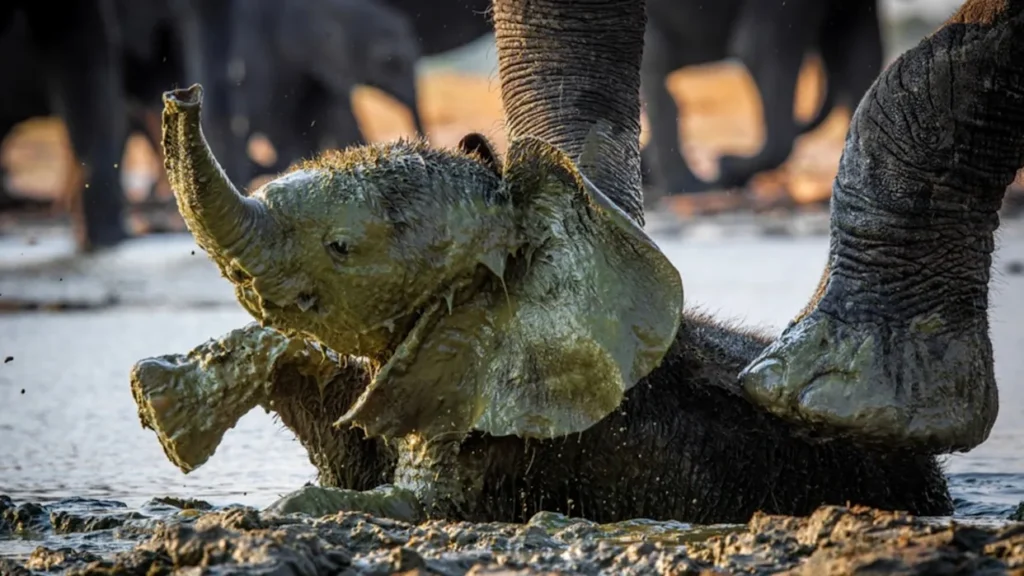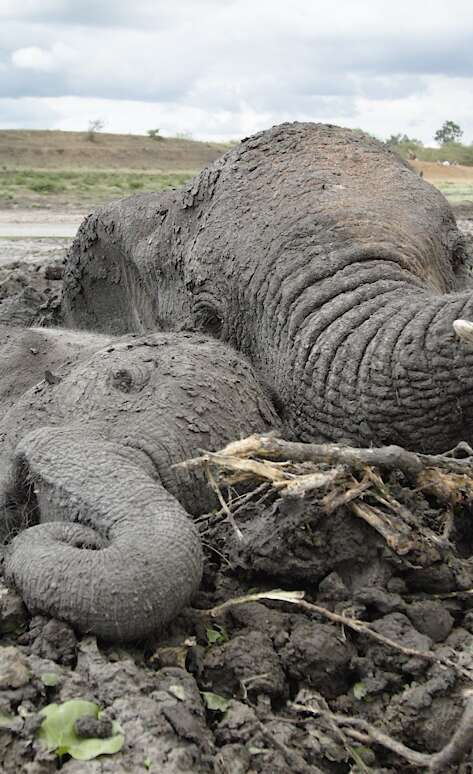
A Deceptive Oasis in a Thirsty Land
In the parched, cracked landscape of Kenya during the relentless drought of 2022, the search for water was a matter of life and death. For a mother elephant and her tiny, five-month-old calf, this daily quest was a slow, arduous journey under a blistering sun. One day, they came upon what must have seemed like a miracle: a shimmering pool, a life-saving oasis in the arid expanse. But this was a cruel deception. What appeared to be a watering hole was in fact a treacherous pit of thick, sticky mud, a natural trap lying in wait for the thirsty and the desperate. The massive, fully-grown mother, her heavy body already weakened by the drought, lost her footing in the slick sludge. With a lurch, she was down, and her small calf, still utterly dependent on her for milk and protection, tumbled into the muck beside her. The promise of water had become a prison of earth.
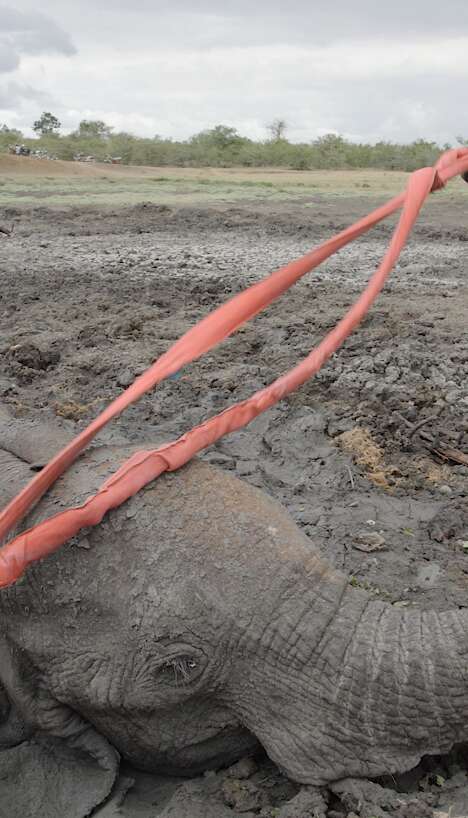
A Mother’s Helpless, Unwavering Vigil
For two long days and two cold nights, the pair was held captive by the mud. Every desperate struggle to gain traction, every powerful heave of the mother’s legs, only served to drag them deeper into the pit’s unforgiving embrace. “As she thrashed around, she just got … more and more stuck,” said Sean Michael of the Sheldrick Wildlife Trust (SWT). Under the relentless heat of the sun, the mother’s immense strength began to wane. Exhaustion set in, and her frantic struggles subsided into a state of helpless resignation. But even as her own energy faded, her maternal instinct burned as fiercely as ever. She could no longer fight the mud, but she could still protect her child. With a tenderness that defied their grim situation, she draped her powerful trunk over her baby’s small body, a living shield against the harsh sun and a constant, reassuring touch in a world of fear. For the little calf, desperately in need of his mother’s milk, her presence was his only comfort.
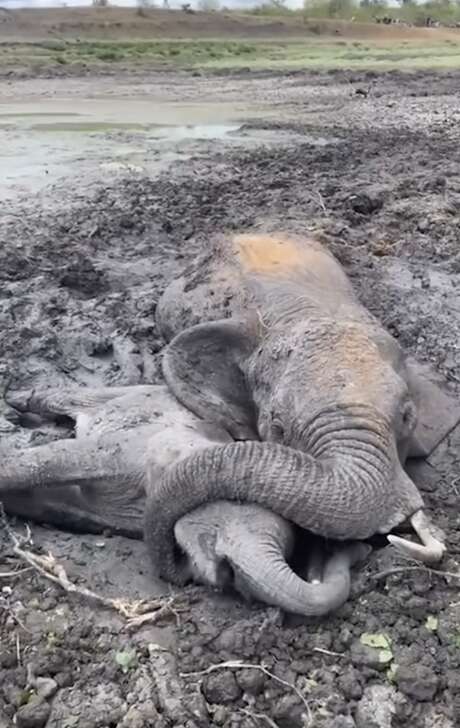
A Rescue Mission Against Instinct
When a rescue team from the Sheldrick Wildlife Trust finally arrived on the scene, alerted by conservation partners, they found a heartbreaking sight. The mother was utterly spent, “fruitlessly churning her legs,” and the baby was weak with hunger and dehydration. The team, who had rescued two other elephants from this very same spot just days before, knew they had to act fast. But as they approached the calf to begin the process of digging him out, they were met with a terrifying display of maternal fury. “This mom was going crazy because she was so protective of her baby,” Michael explained. In her exhausted, terrified mind, these strange figures were not saviors; they were predators approaching her helpless child. She thrashed and protested, her love for her baby so powerful that it had become a dangerous obstacle to their rescue. She refused to budge her trunk from her calf, a defiant, silent declaration that she would protect him to her very last breath.
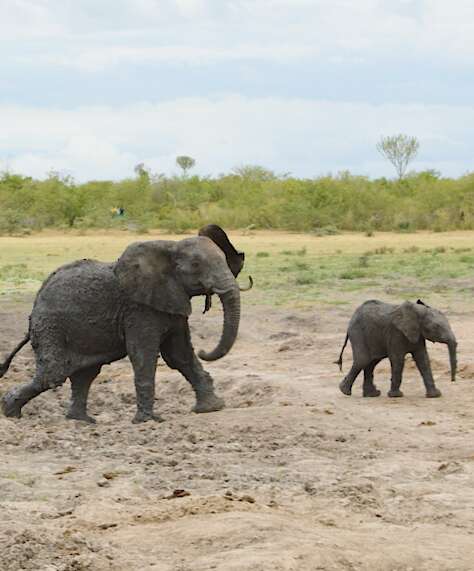
A Reunion and a Role Reversal
The rescuers were faced with a profound dilemma: to save the pair, they would have to overcome the mother’s powerful, protective instincts. With no other safe option, the veterinary team made the difficult decision to anesthetize her. Only when she was safely asleep could the team rush in and free her baby. But the bond was a two-way street. The moment the calf was on solid ground, he refused to leave his mother’s side, running back to her unconscious form and wailing with distress. With no other choice, the team had to anesthetize the loyal calf as well, so they could undertake the monumental task of freeing the mother. With a tractor, two Land Cruisers, and a great deal of digging, they finally pulled her massive body from the mud’s grip. When the vet team revived the baby first, he wobbled straight to his mother, nudging her urgently with his trunk, pleading with her to wake up. As she began to stir, a beautiful role reversal took place. The tiny calf, her small charge, confidently took the lead, guiding his mighty, exhausted mother away from the treacherous pit and back toward the safety of the wilderness.
